The question on everyone's mind is: Will AI replace game developers? As technology advances, the gaming industry finds itself at a crossroads where artificial intelligence is reshaping how games are created. We'll explore the roles that AI might take over, the tasks it can enhance, and the irreplaceable elements that only human developers can bring to the table.
In this post, we'll dive into the various aspects of game development, discussing both the potential replacements and the areas where human creativity shines brightest. Expect insights on job market trends and how developers can adapt in an increasingly AI-driven landscape. Stay tuned to discover whether AI is a friend or foe to game developers!
Table of contents
The Great AI Debate: Friend or Foe?
In the ever-evolving world of game development, the encroachment of AI has sparked a heated debate. Many developers, as noted in a Game Developers Conference survey, express concern over AI's potential to reduce the quality of games, with 30% believing it poses a threat to the industry. This fear is amplified by recent layoffs, where AI is often seen as a tool for cost-cutting, leaving many to worry about job security.
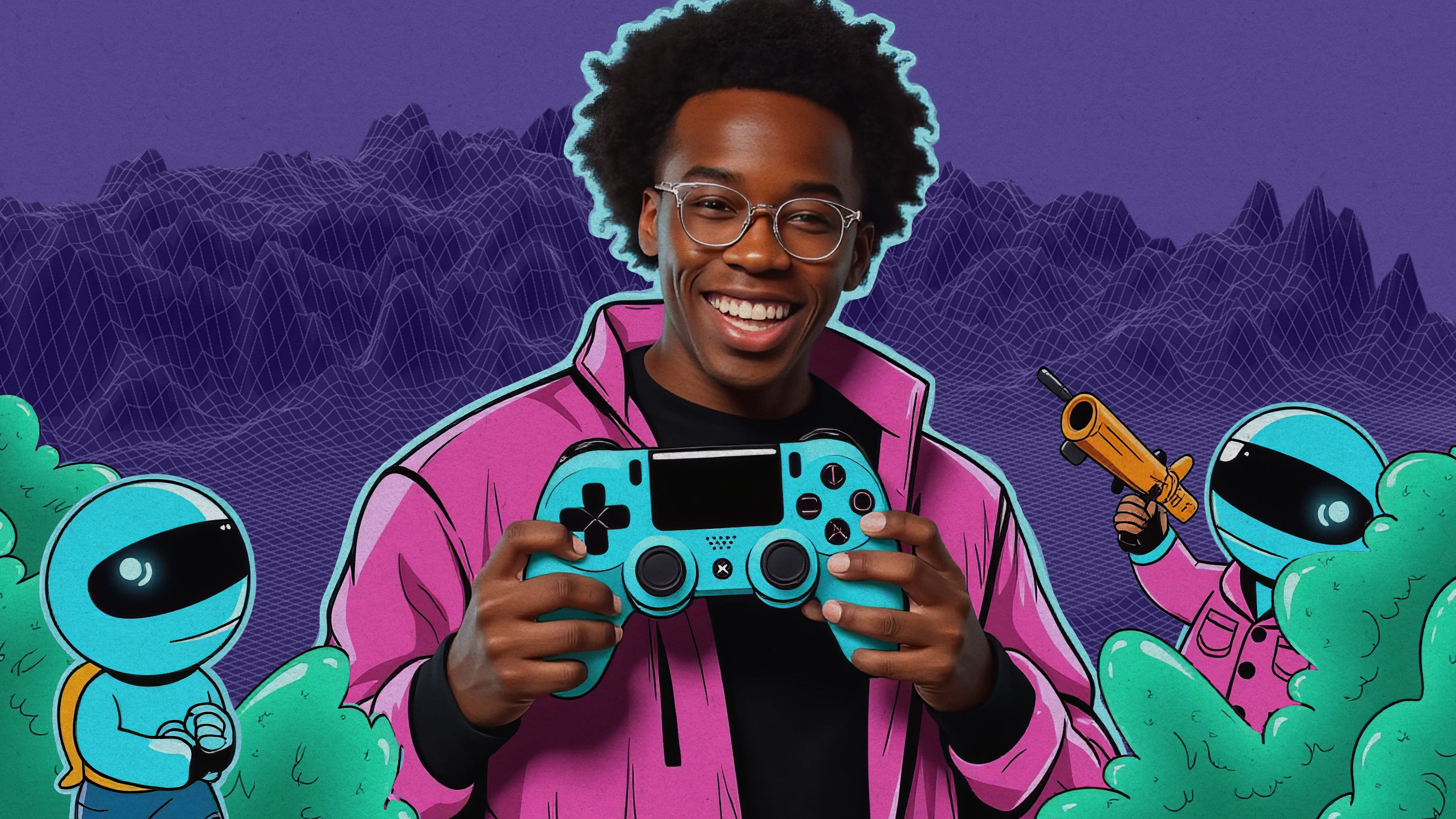
Credits: TechnologyReview.com
However, not all views are bleak. A Unity report highlights that a significant 79% of developers feel positive about AI, seeing it as a tool to enhance workflows and creative output. AI's ability to automate repetitive tasks allows developers to focus on what truly matters - creativity and player engagement. Some, like those in the Finnish game industry, even appreciate AI as a co-creator, augmenting rather than replacing human ingenuity.
Despite the contrasting opinions, there seems to be a consensus that AI will not fully replace human developers. As discussed in Technology Review, AI is viewed more as a means to alleviate tedious tasks rather than a substitute for human creativity. Ultimately, the relationship between AI and game developers may best be described as a symbiotic one, where both forces collaborate to create richer gaming experiences.
What parts of Game Developer jobs is AI replacing?
AI is set to transform various aspects of game development, particularly tasks that involve repetitive and time-consuming processes. For example, AI can generate art assets, including textures and character models, significantly reducing the workload on artists. According to a Gartner report, AI is being used in environments and level design, which allows developers to create complex scenes much faster than traditional methods.
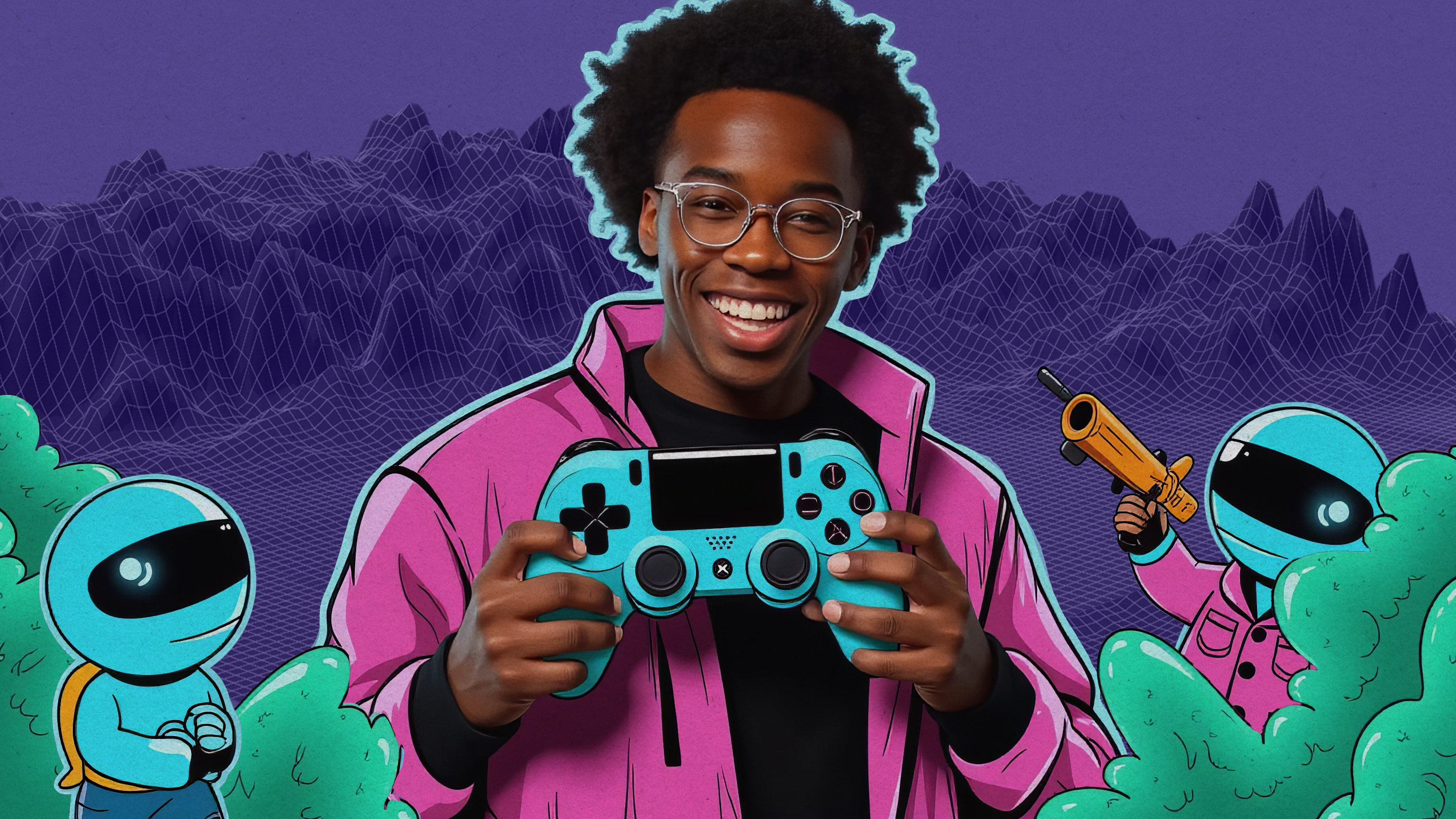
Credits: Image by Technology Review
Moreover, AI's role in game testing is proving to be a game changer. It automates the detection of bugs and gameplay issues with greater efficiency than human testers. A recent discussion highlighted that AI can analyze player behavior to inform design decisions, helping studios enhance engagement (Steam Community). While AI can take over these areas, the creative aspects of storytelling and character development will still require the human touch.
What Parts of Game Developer Jobs AI Cannot Replace
Game development thrives on human creativity, something AI cannot mimic. While AI can automate repetitive tasks or assist in generating assets, it lacks the human touch required to create compelling narratives and characters. For instance, as highlighted in USV's article, developers draw from personal experiences to craft stories that resonate on an emotional level. This creative insight is something AI, rooted in data and algorithms, simply cannot replicate.
The collaborative nature of game development is another area where AI falls short. As noted in Quora's discussion, successful game development relies on teamwork and communication among various specialists like artists, writers, and programmers. AI cannot participate in the dynamic brainstorming sessions that are crucial for creating engaging and immersive games.
Ethical considerations in game design further showcase the irreplaceable role of human developers. According to Samantha Stahlke's article, human judgment is necessary to address sensitive themes and societal issues with nuance. AI lacks the ability to navigate these complex ethical landscapes, which is crucial for creating meaningful and socially aware games.
Career Evolution for Game Developers in the AI Era
Game developers face a shift as AI tools integrate into workflows, moving from traditional coding to more strategic roles. AI can enhance game mechanics, creating intelligent NPCs and adaptive experiences, as noted by The Server Side. This means focusing on creative design, narrative development, and user experience, which AI assists rather than replaces Spencer Stuart. Tools like Copilot and ChatGPT also allow smaller teams to accomplish more by generating and debugging code, accelerating product delivery across various platforms dev.to.
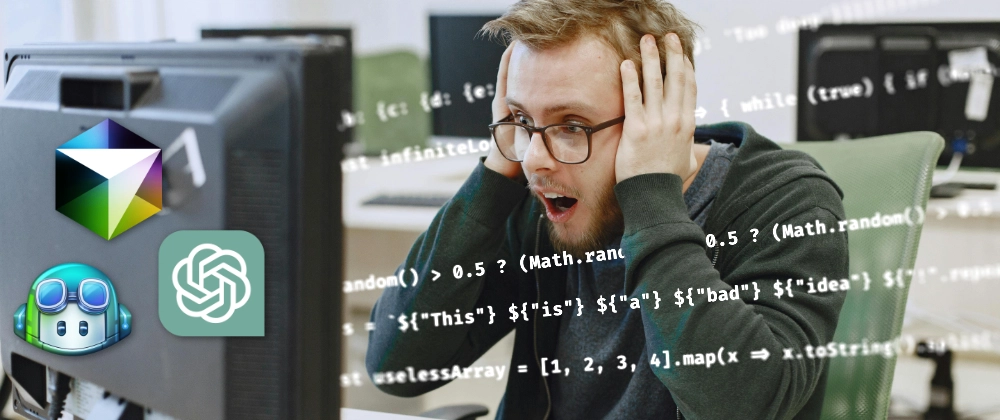
Credits: dev.to
To adapt, game developers should acquire new skills, starting with languages like Python, Java, C++, and C# Dice. Understanding machine learning models for player behavior and generative AI for procedural content generation is key Spencer Stuart. Developers should also explore "Vibe coding" and natural language programming, which enable game creation through conversational commands rather than complex syntax LinkedIn. Analytical skills, collaboration, and a willingness to learn new technologies complete this skill set The Server Side.
Game Developer Job Market Trends in the US for 2025
The US game developer job market in 2025 presents a mixed picture, with significant hiring activity alongside continued challenges. While over 109,000 gaming jobs were posted this year, reflecting demand in development, design, and engineering, the industry has also experienced widespread layoffs. Reports indicate that 10-11% of developers lost their jobs in the past year, with 41% feeling the impact, often due to company restructuring or declining revenue.
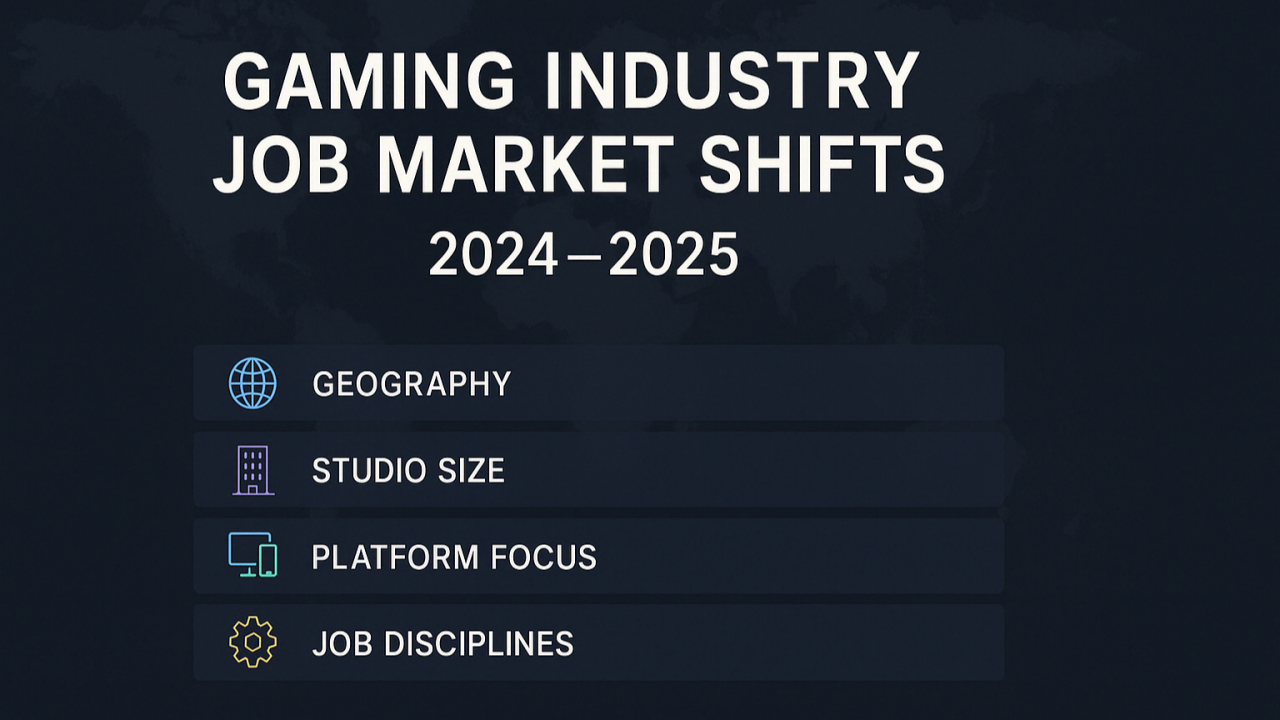
Credits: LinkedIn Pulse
Hiring is largely focused on mid-career professionals with 5 to 15 years of experience, making entry-level roles particularly competitive, with North America seeing only a 2% chance for new professionals to secure a role. Specialized technical skills are in high demand, including game programmers (especially Unity and Unreal), backend/cloud engineers, and AI/machine learning specialists, as studios seek candidates with broader skillsets. There's also a notable shift, with 80% of developers now focusing on PC games, up from 66% previously.
Geographically, North America has borne the brunt of recent job cuts, while a LinkedIn analysis shows Asia now leads in global game development job openings, surpassing Europe and North America. Despite the layoffs, the industry shows resilience, with demand for adaptable skills and growth in areas like immersive technologies. However, developers remain cautious, with 58% expressing worry about future job security.
Is Game Developer AI safe?
The debate around AI in game development raises important questions about job security. Many developers fear that AI tools, particularly in areas like concept art and asset generation, could replace their roles. In fact, recent surveys indicate that a significant portion of the workforce feels anxious about AI's impact, with some believing it could diminish creative quality and even lead to layoffs. However, while AI can take on repetitive tasks, it lacks the creative spark that fuels engaging narratives and original gameplay experiences.
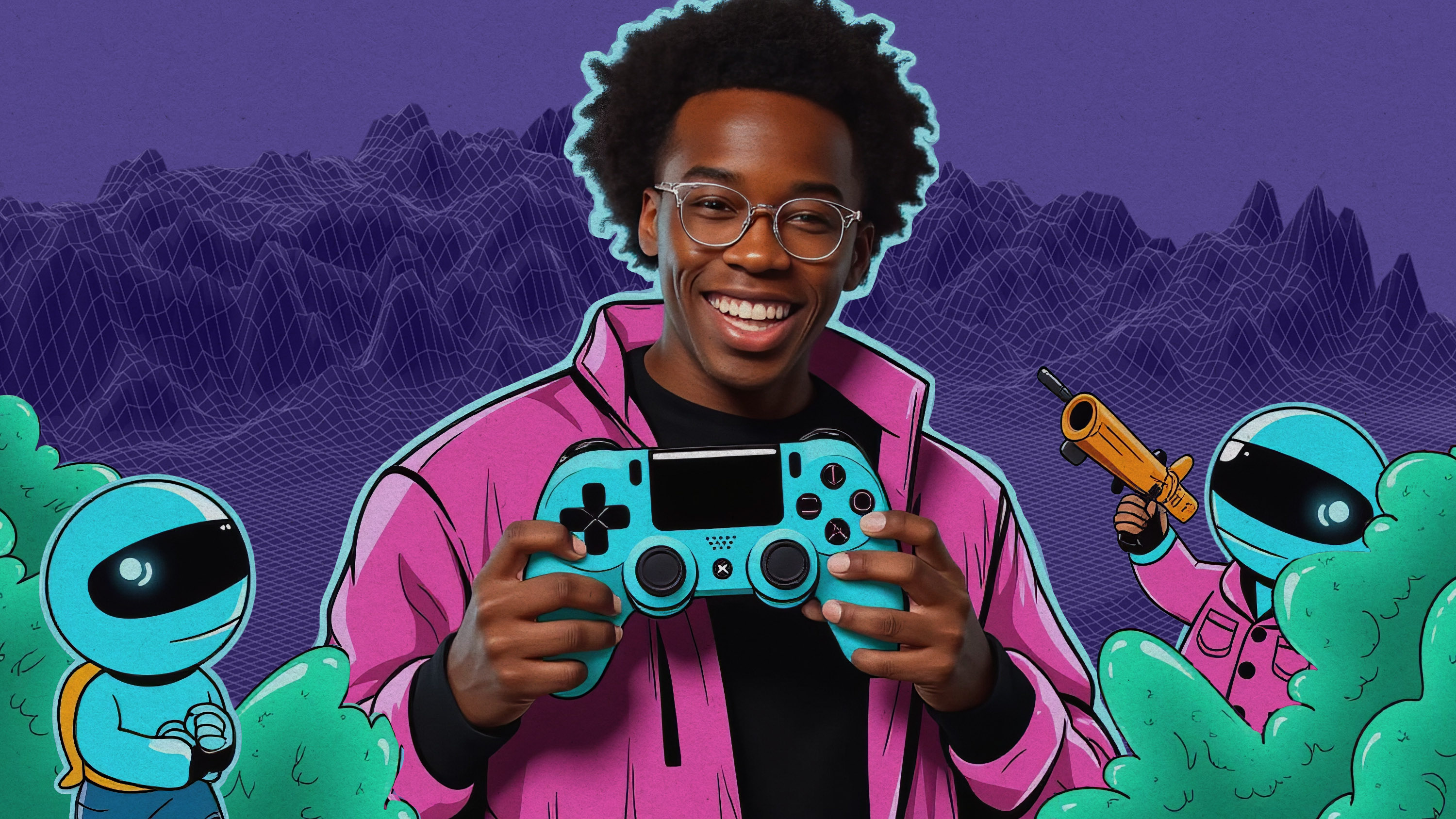
Credits: TechnologyReview.com
On the flip side, AI offers exciting potential to enhance workflows and creativity. For instance, developers can leverage AI for procedural content generation and quality assurance, freeing them to focus on more imaginative aspects of game design. This partnership between human creativity and AI efficiency suggests that the role of game developers won't disappear but will evolve. Ultimately, the industry seems to be heading toward a collaborative future where AI augments, rather than replaces, human talent.
Hiring Game Developers? Here's What to Look For
When hiring Game Developers today, look for more than just coding chops. Candidates should show strength in languages like C++, C#, and Python, along with skill in game engines such as Unity and Unreal Engine. With the gaming world changing, prioritize those who understand AI integration for features like NPC behaviors and procedural content generation, alongside creative problem-solving and adaptability. These abilities help build games that truly stand out.
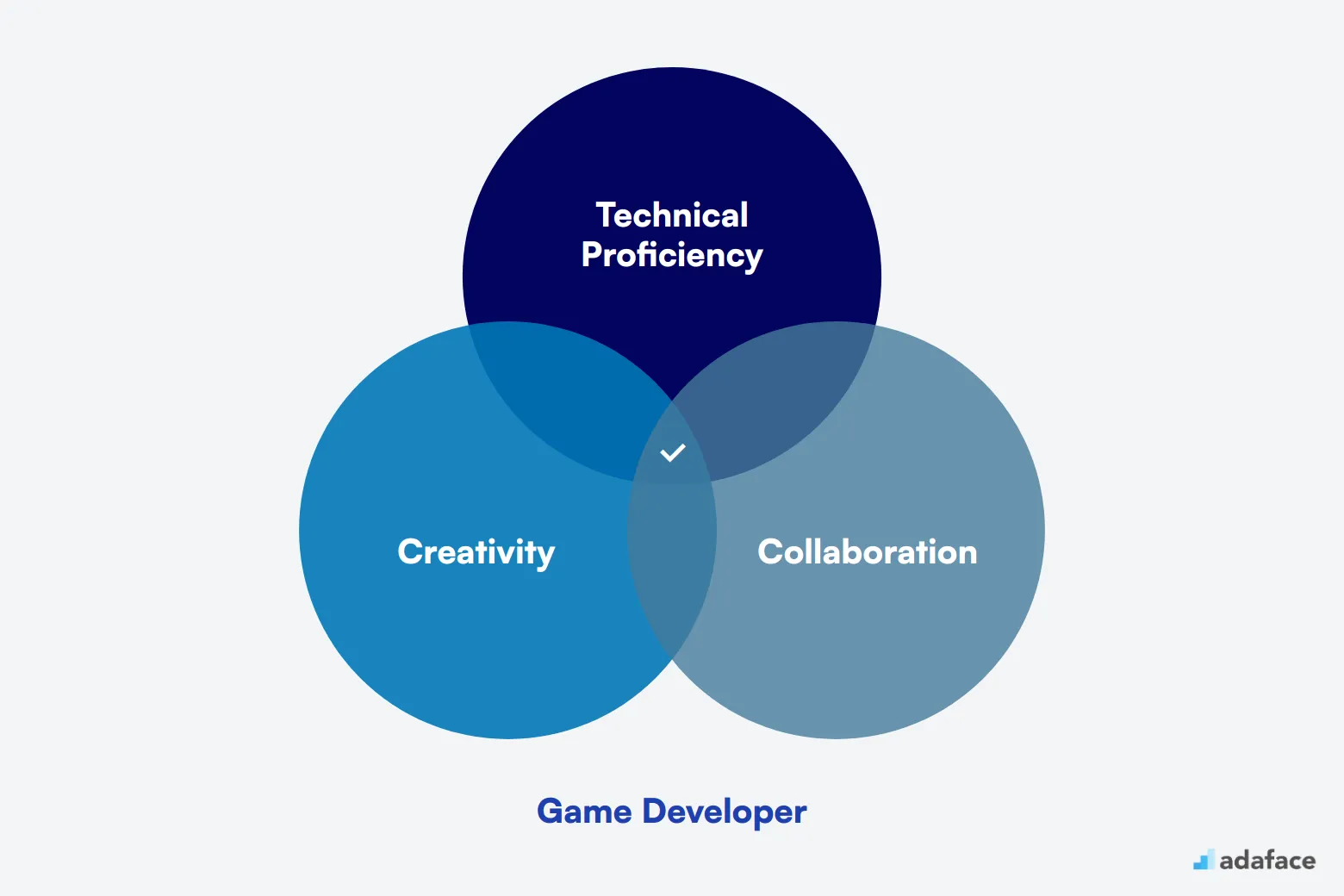
Credits: Adaface
To find these superstars, early screening is important. Adaface's AI-powered assessments measure on-the-job skills, helping you fairly evaluate candidates beyond their resumes. For example, the Generative AI Test and Prompt Engineering Test can pinpoint candidates ready to innovate with AI, while the Unity Test verifies engine expertise. This approach helps filter out candidates who aren't a match, saving you time and effort.
Prompt Engineering Test
Generative AI Test
Unity Test
The AI Horizon: Game Developers, Get Ready to Thrive
AI isn't here to take over; it's here to supercharge creativity. Imagine AI as your ultimate co-pilot, handling repetitive tasks like procedural content generation and automated testing [Source 1, 4, 9], freeing you to craft compelling narratives and resonant player experiences [Source 1, 2, 8]. For studios, this translates to quicker iteration, smoother workflows, and a significant boost in productivity, with some reporting over 20% gains [Source 6].
This shift isn't about job loss, but career evolution. Developers can pivot to more strategic roles, leveraging AI for dynamic storytelling and enhancing NPC behaviors [Source 2, 5, 7]. New opportunities arise in overseeing AI-generated content, ensuring the heart of the game remains human [Source 10], amplifying creative vision, not diminishing it.
Looking ahead, the game development landscape is transforming into a collaborative playground where human ingenuity and AI innovation dance together. By embracing new skills like understanding machine learning and generative AI, developers will unlock unprecedented possibilities for immersive gaming experiences [Pivot Section]. The future is bright for game developers; it's a world where technology empowers us to create games we've only dreamed of.

40 min skill tests.
No trick questions.
Accurate shortlisting.
We make it easy for you to find the best candidates in your pipeline with a 40 min skills test.
Try for freeRelated posts



